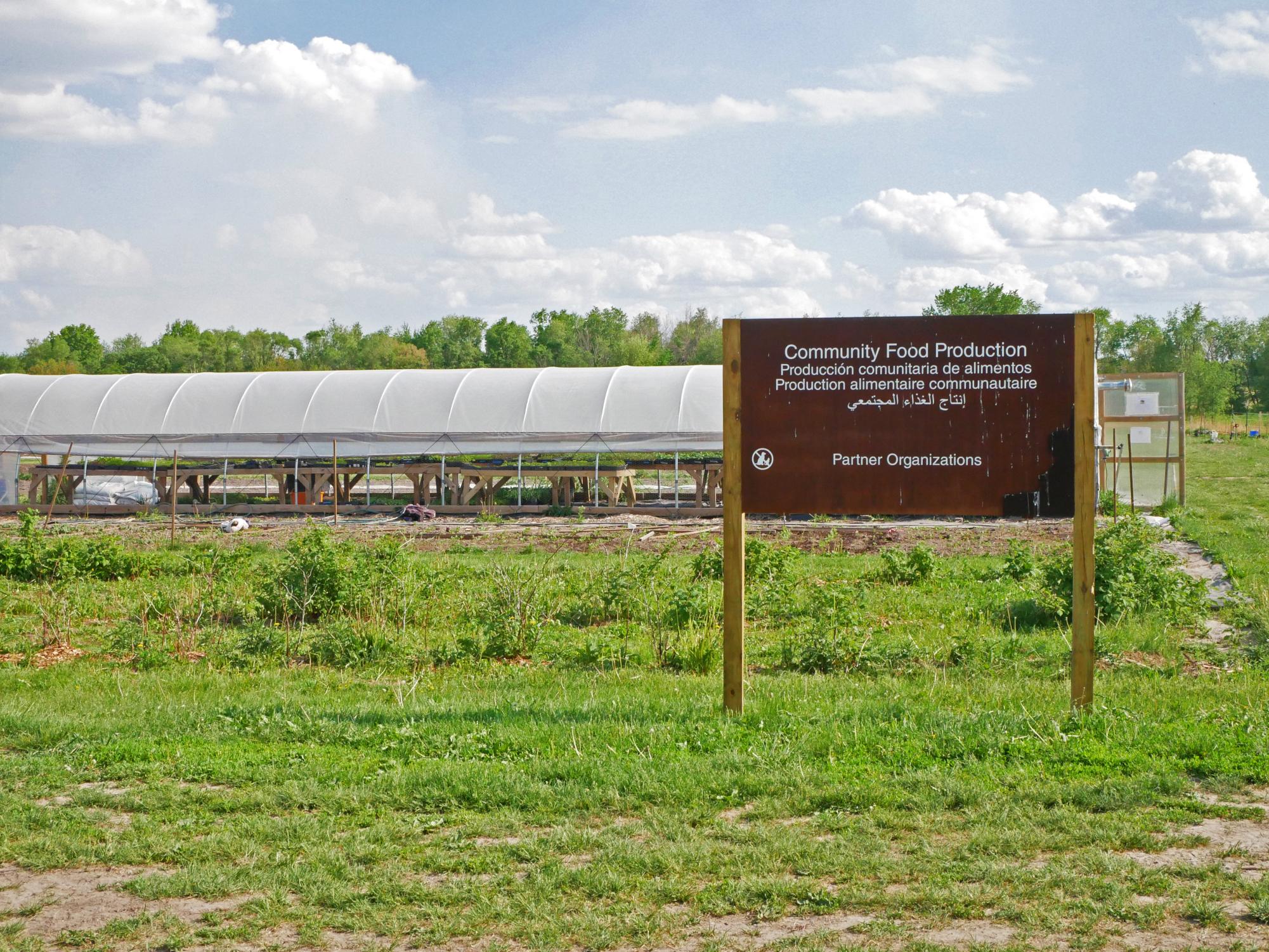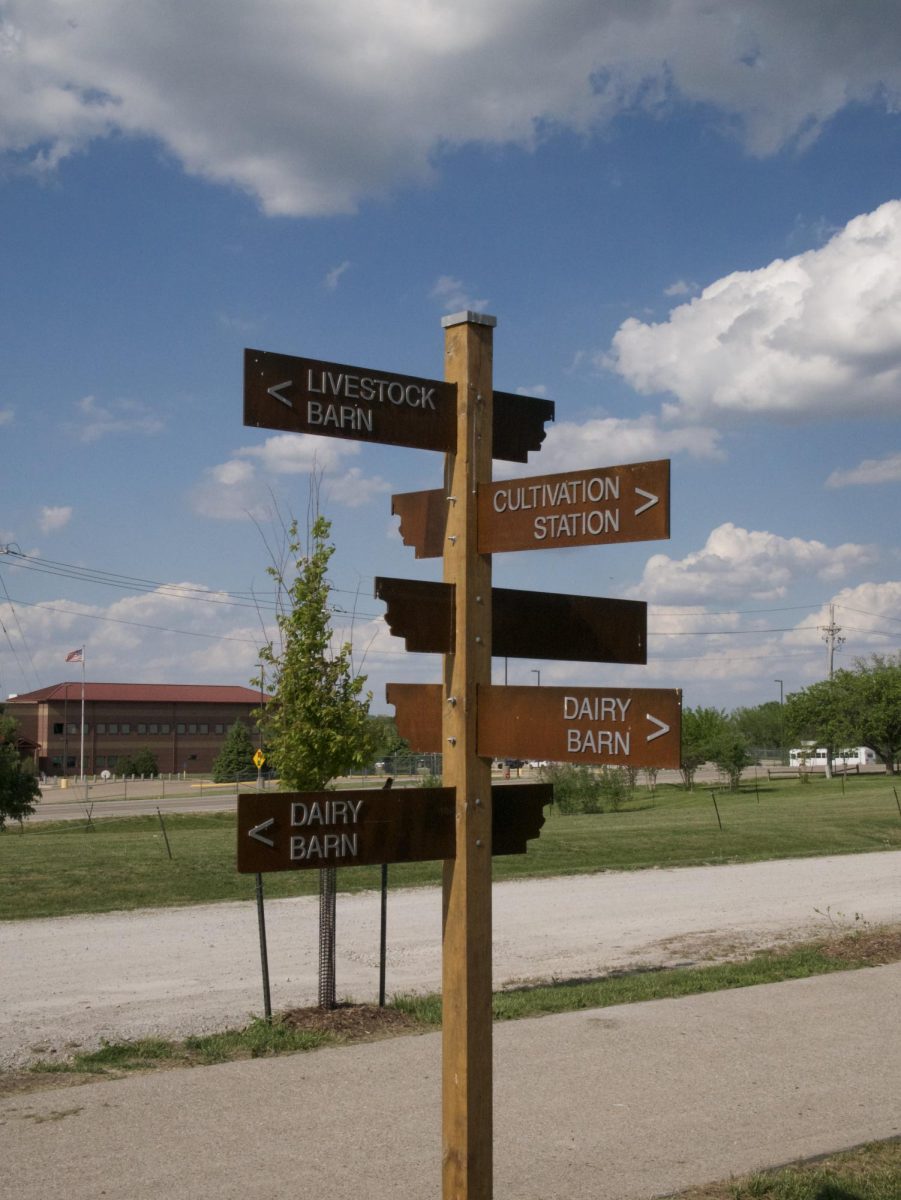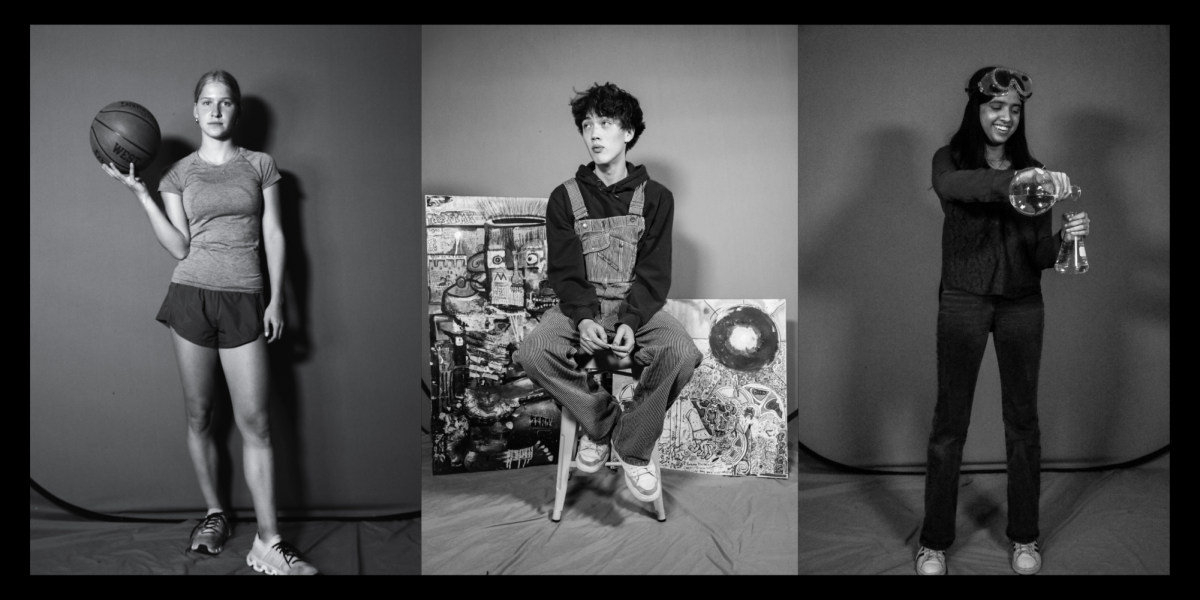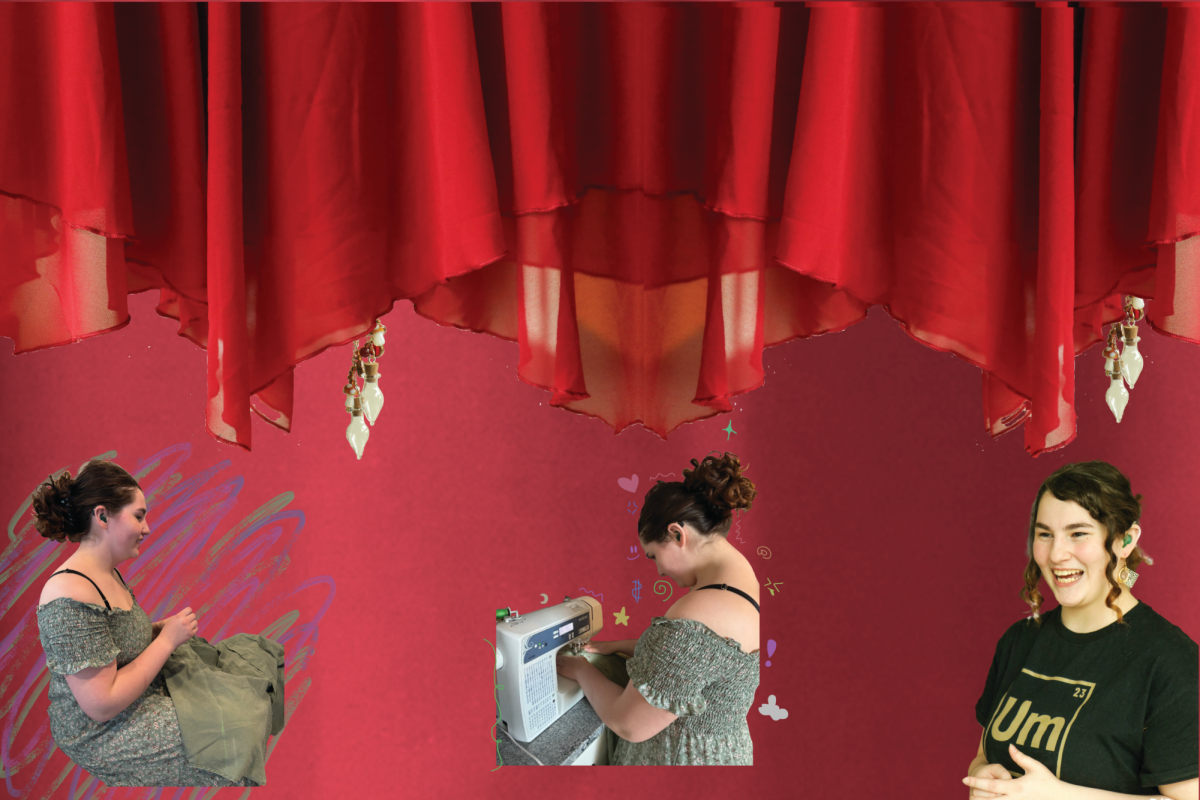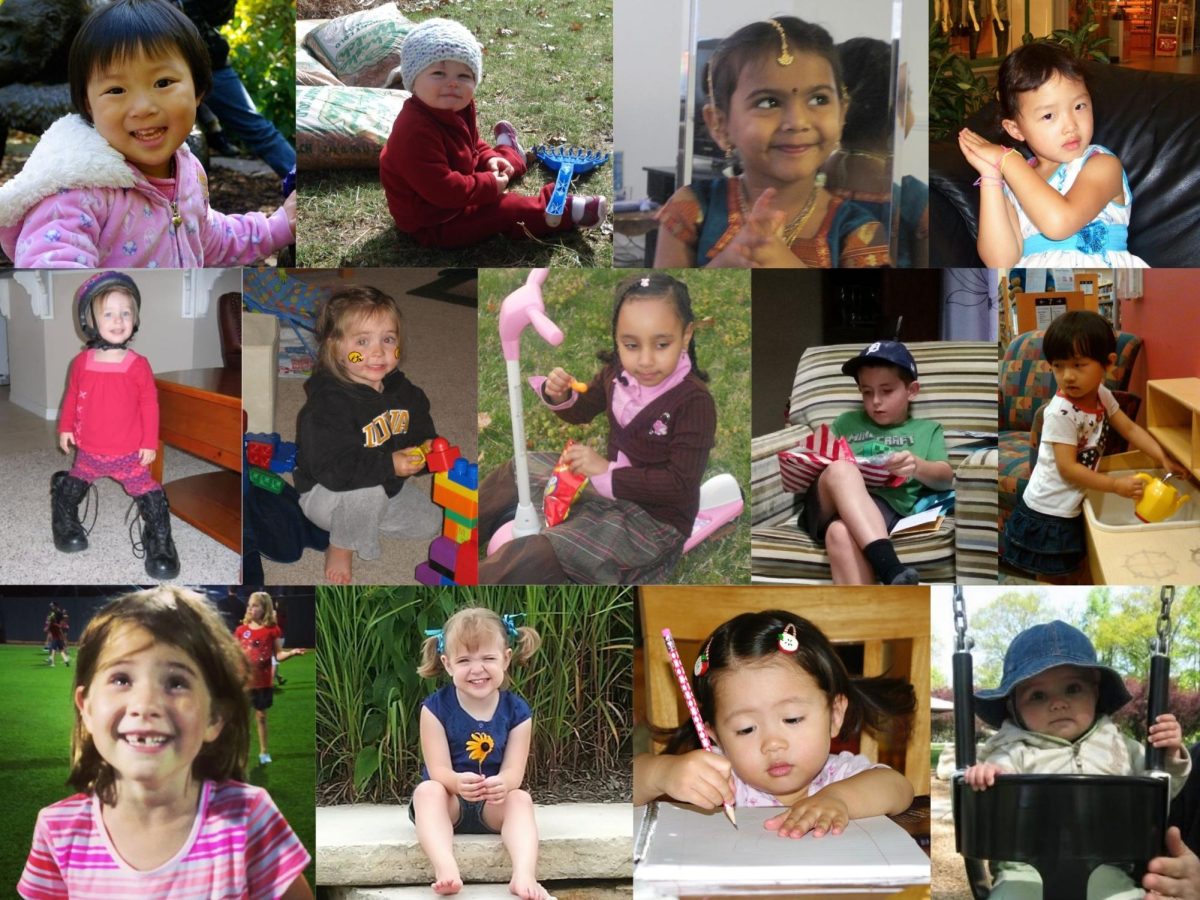Global Food Project is a nonprofit organization housing community gardens, mostly for immigrants and refugees in the Iowa City area. Global Food Project operates at the Johnson County Historic Poor Farm, where there are nearly 100 family plots. Individuals at the farm are able to grow food for themselves, their families and their immediate community. Some individuals also grow on larger market plots to generate income.
Felicia Pieper is the current Global Food Project manager. Before stepping into the role, Pieper got her master’s degree in public health and worked as the program manager for the Coralville Food Pantry. “That got me thinking, well, what would it look like if people were in control of their own food, rather than waiting for someone to give them charity? And that got me into working on a few vegetable farms over the past few years,” Pieper said. Global Food Project’s former manager, Will Kapp, approached Pieper last summer and piqued her interest in the organization’s work.
As a manager, Pieper is one of two staff for the program and the only full-time staffer. A major part of her role involves allocating plots in an equitable manner. “There’s some, you know, values-based decisions that need to go on there. For example, most of our families at this point have two plots. And so that’s always a constant question of, is it more fair to allow the people who are growing, literally growing food, but also growing their skills, to be able to expand, or is it more fair to let more people come in?” Pieper said.
Because there are more people than available plots, the project has a waitlist. In an effort to expand the project, Pieper aims to build partnerships with individuals who have a yard to share. “I’m speaking to someone this week who offered that. I really see that as a way to organically grow the program, and again, centering the whole mission, which is to build connections,” Pieper said.
One particularly valuable connection for Global Food Project is Johnson County. The Board of Supervisors and elected officials make decisions related to the gardens. Iowa Valley RC&D helps manage the land and resolve issues like irrigation.
Field to Family is another nonprofit that particularly benefits market plot growers. The majority of sales last year came through the organization’s food hub. “We work closely together, and they are very dedicated to working with our growers and understanding that language is a barrier, and understanding technology is a barrier, and always going above and beyond to make sure that we as a program, but also the farmers individually, have what they need to be able to sell through their platform,” Pieper said.
Unlike most nonprofits, Global Food Project doesn’t rely on volunteers to operate. Instead, it relies on plot owners to maintain their own land. “But I know people want to get out here, and I know they want to help. So we’re working this year to come up with some creative like projects in ways that we can utilize volunteers,” Pieper said.
Global Food Project has a wide reach that includes West High students. Junior Nathan Ilunga and his family have been involved with the project for two years. With a passion for farming, Ilunga’s mom signed the family up for a plot as soon as the opportunity arose. There, they grow Nya Nya Chungu (African Eggplant), tomatoes and corn. “So like, sometimes she sells it. Sometimes she gives it to my cousins. We keep it sometimes. Since we got a lot of Nya Nya, we give that away, though,” Ilunga said.
Ilunga believes that Global Food Project is an outlet for people to bond over growing culturally significant food together. “It lets us build a place for people who don’t have a piece of property for themselves to farm our food that we have in our own culture. We can make a lot of it too,” Ilunga said. “I saw a lot of different people there, and I saw more kids, like they were farming. It was pretty cool to see. And it helped me spend time with my family more and farm.”
Bisimwa Ruguduka ’26 is another student whose family is involved with the gardens. Like Ilunga, Rugudaka’s mom has a passion for gardening and growing traditional foods. “She didn’t like going to the store to buy processed foods that could have been put through chemicals, that kind of stuff. She likes natural stuff,” Rugudaka said. At the farm, Rugudaka’s mom grows cabbage, peppers, lettuce and corn.
Ruguduka says his mom introduced him to the gardens to show him how people from different cultures connect. He has been involved for about a year, mostly working during the summer. “For me, it’s a place where people could go escape reality and go connect with nature and all types of stuff,” Rugudaka said.
Those interested in gardening can contact Pieper at felicia@iccompassion.org. There are no criteria to get a plot—allocation depends on available space. “The mission of the program is to build community, and we also recognize that community needs to happen between newly arrived folks and established Iowans,” Pieper said.
One of Global Food Project’s goals for the year is to host more community events. Starting July 12, the project will host a Farmers Market on Saturdays from 3 to 5 p.m. at the Johnson County Historic Poor Farm. All are welcome.



